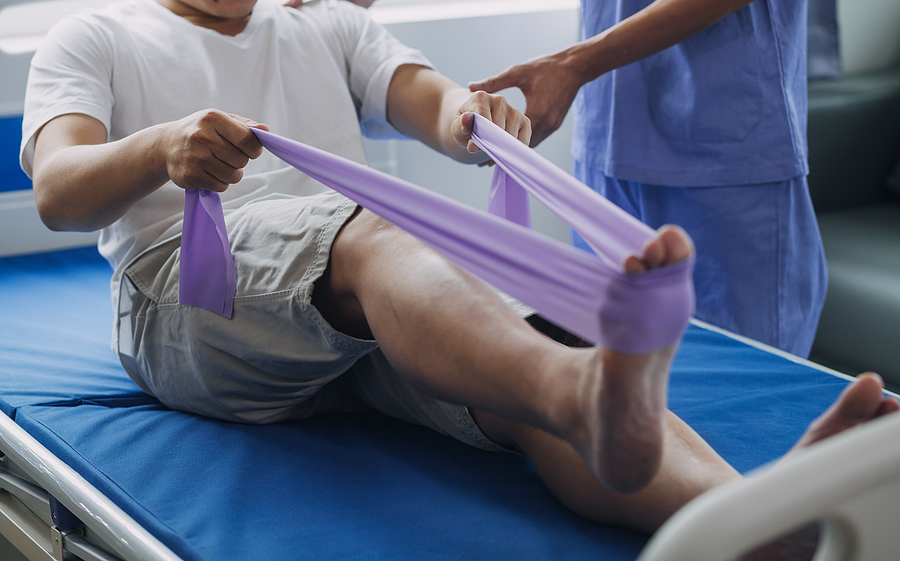Popular spring sports range from tennis to track and field and baseball/softball to golf. No matter what activity gets you or your kids to head outside and participate on a sports team or join friends for a scrimmage, spring sports safety is important.
Stanford Medicine reports that over 3.5 million U.S. children younger than 15 are injured in sports or recreational activities each year. Of those millions, over 775,000 kids end up at the ER for treatment. Half of all head injuries occur when bicycling, skateboarding, and skating.
Injuries are more likely to happen during a practice when there’s a collision between players, a blow from an object, or overexertion. Contact and collisions cause the largest number of injuries. The Consumer Product Safety Commission listed these sports as the worst for injuries in children, and our data includes the estimated number of injuries in each sport.
- Football (215,000 injuries)
- Bicycling (200,000 injuries)
- Basketball (170,000 injuries)
- Baseball/Softball (110,000 injuries)
- Soccer (88,000 injuries)
- Skateboarding (66,000 injuries)
- Trampolines (65,000 injuries)
- In-line and roller skating (47,000 injuries)
That’s just children. Older teens and adults are also prone to injuries. If you look at what people of different age groups were doing, it’s clear that sports aren’t the only problem. Using exercise equipment or performing exercises during warm-ups causes the most injuries in people between the ages of 25 and older. Cycling is second.
Basketball causes the most injuries in people between the ages of 15 and 24. Football is second. Those are the injuries you or your kids face. What do you do to prevent them?
Warm-Up Before a Practice or Game
Don’t get right into a practice or game. A warm-up is a must if you want to prevent muscle strain. When you’re warming up, make sure that every joint in your body gets stretched out and lubricated through exercises like lunges, arm and leg circles, and neck rolls.
A coach should make a warm-up part of any practice. If the coach of your child’s team isn’t, speak up and ask why.
Use Protective Equipment
Don’t participate in sports without the right equipment. If you’re riding a bike, a helmet is essential. Skaters and skateboarders should have helmets, knee pads, shin protectors, and elbow pads. Gloves can help you avoid skinned hands in a fall.
Football players should have a helmet, mouthguard, and chest protection. Baseball and softball players must also have a helmet and shin protectors when batting. Shoes that provide traction and ankle support are important, too.
In addition to having the right equipment, you have to make sure it fits correctly. If a helmet moves around, it’s not going to effectively protect your head, especially if it is loose enough to fall off.
Know Your Limits
Pushing your body harder than it can handle is a good way to cause injuries. If you’ve reached your limit, stop and rest. It’s better to stop just before you have reached your physical and mental limits.
If you’re practicing or playing and something feels wrong. Stop, get it checked, and sit out if needed. You can cheer your team on from the sidelines rather than risk an injury that puts you out of the game for the rest of the season or even permanently.
For any athlete who is out of shape or slowly improving, it’s better to work with a doctor or physical therapist to improve your condition and have guidelines in place to follow during a practice or game. You shouldn’t jump right in without knowing if it’s safe.
Stay Hydrated
Hydration is important. Water does an awful lot within your body. It…
- Aids with digestion
- Assists the brain in hormone and neurotransmitter production
- Carries oxygen throughout the body through the bloodstream
- Flushes waste products from the body through the urine
- Helps cells grow and multiply
- Lubricates your joints
- Provides shock absorption for the brain and spinal cord
- Regulates your core body temperature
As you sweat, you’re losing salts and other important minerals that keep your body working properly. You’re also losing water. Water makes up 60% of the body, and it breaks down like this.
- 83% for the lungs
- 79% for the muscles and kidneys
- 73% for the brain and heart
- 64% for the skin
- 31% for the bones
A general guideline for daily water intake is 3.2 quarts for men and 2.3 quarts for women. Some water comes from foods, but the rest needs to come from the beverages you drink. If you’re sweating a lot, you need to replenish the water you’re losing.
Provide Your Body With the Right Fuel
Whether you have a game or practice, your body needs the fuel to stay in motion. Food is fuel, but processed foods aren’t ideal. Your body needs protein, antioxidants, fiber, healthy fats, and calcium for cell and muscle repairs, strong bones, and energy. Avoid empty calories.
Carbohydrates provide as much as half of a body’s energy requirement. Complex carbohydrates are best, and they include beans, potatoes, whole grains, and cereals. Fats provide up to 70% of your body’s energy requirements. That leaves protein, which the Academy for Nutrition and Dietetics recommends as much as 1.2 to 1.4 grams of protein per kilogram of body weight.
Start Strong
It helps to be in the best condition possible. Your muscles and joints need to be in the best possible condition before you start playing a game, or you run the risk of injuries from strain and overexertion.
Strength training helps with balance and stamina, and Premium Sports & Orthopedics has medical weight loss and fitness programs if you need to lose weight and get back into shape following a long winter or recovery from prior injuries. EMS training is also available and helps build muscle mass using gentle electrical stimulation for accelerated results.
If you or your child does suffer an injury during a game, scrimmage, or practice, don’t wait and hope things improve in a few days. It’s better to learn it’s a minor injury than delay and cause complications.
Urgent care and ER doctors take care of your urgent needs, but Premium Sports & Orthopedics is best for continued treatments that help with pain management, rehabilitation, and achieving your fitness goals.
Appointments are available throughout the week, and we often have a handful of appointments for the same day. Book online at your convenience or fill out the contact form to have one of our specialists call you to book an appointment.







